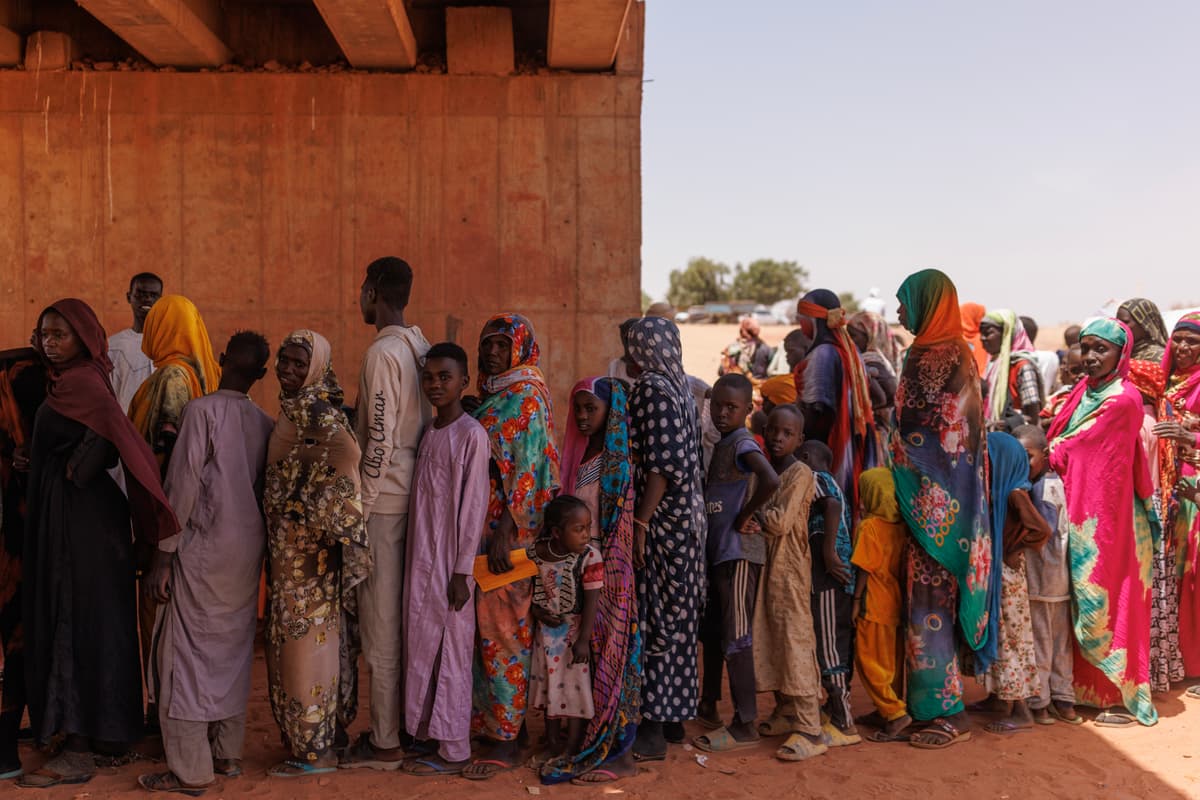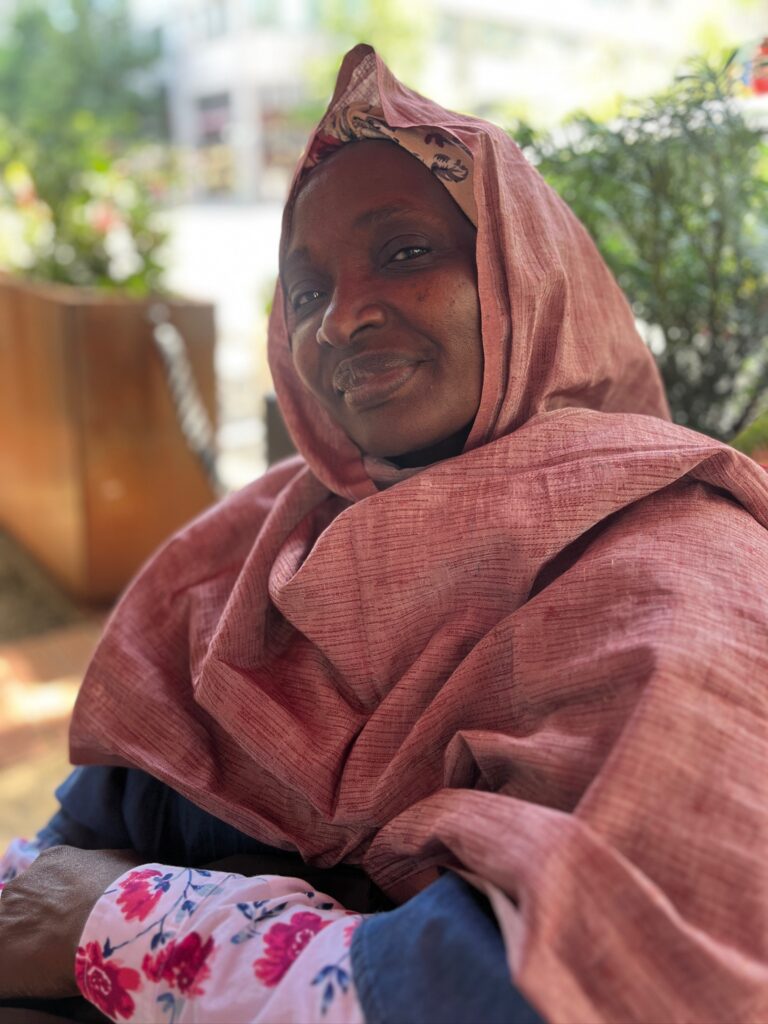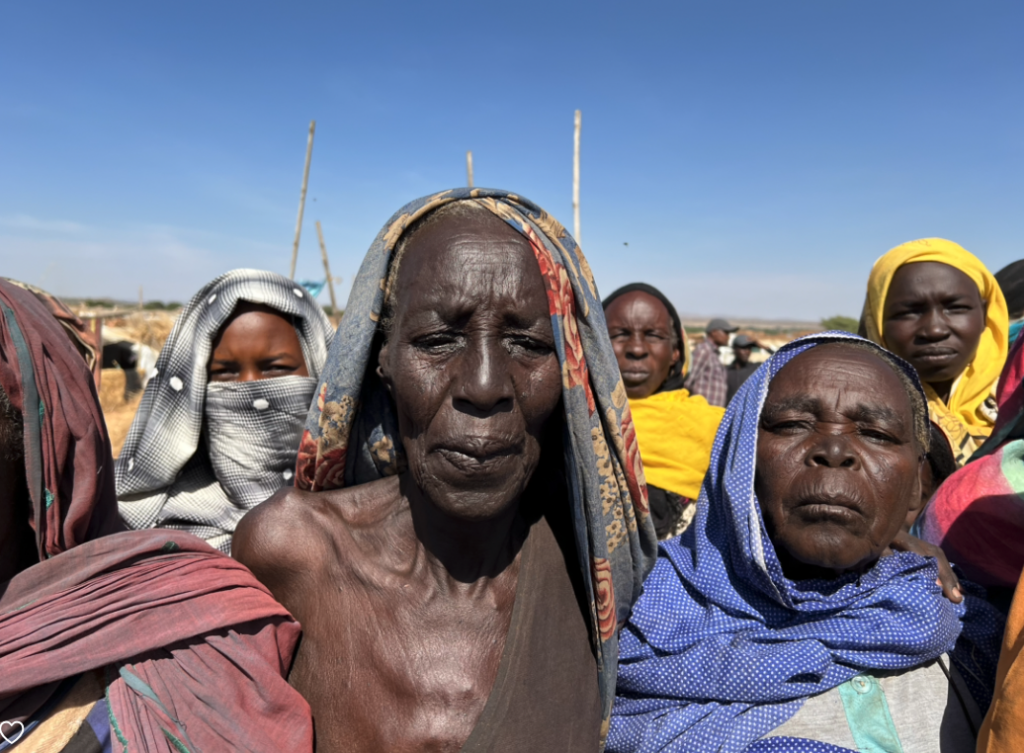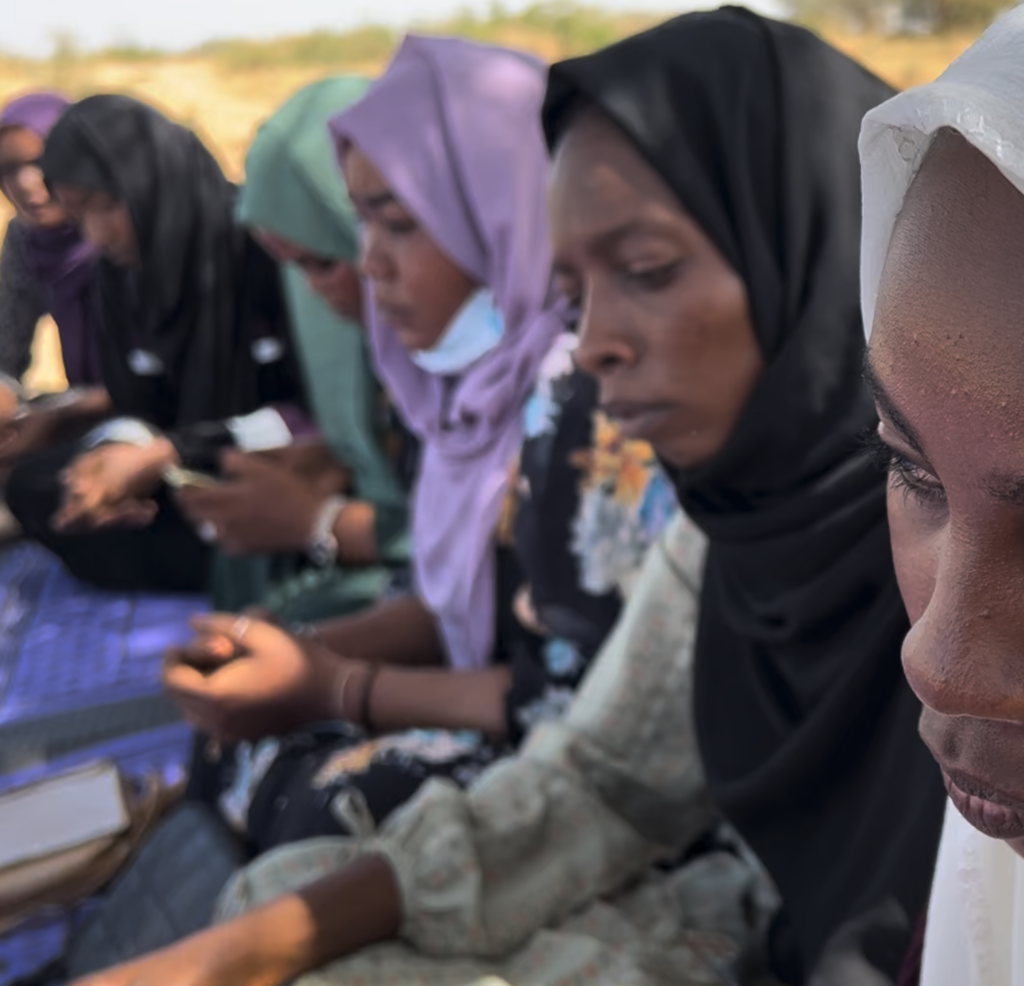In Echoes of Genocide, Tens of Thousands Are Killed or Wounded as Darfur’s Latest Horror Grinds Through Its Second Year
One woman lost 16 members of her family and hopes to find her missing brother.

Sudan’s war in Darfur is in its second year, echoing the horrors of 2003 with no resolution in sight. Since tensions escalated into full-scale conflict in April, tens of thousands have been killed and wounded, and more than 9 million forced to flee as the region spirals into one of the worst humanitarian crises on the planet.
What is most chilling, survivors say, is the calculating way the Arab-dominated militant forces — known interchangeably as the Rapid Support Forces or the Janjaweed from two decades ago — are using unfathomable tactics to break civilians, particularly those belonging to the ethnic African Masalit tribe.
“First, they invaded homes and insulted the people, saying they were dogs, insects, and the equivalent of the ‘N’ word. In successive home invasions, they stole more and more, until there was nothing left that hadn’t been stolen or destroyed and nothing for the Masalit to come back to,” Tom Prichard, Executive Director of the NGO Sudan Sunrise, told The New York Sun.
“Males over nine were killed, and often after extreme humiliation — like being paraded in public walking on all fours like dogs. RSF fighters told one man to cry in front of his family, and then when he was executed, his family was told that he was a coward.”
This was just the beginning of the suffering.
“When men were killed, and the families would bury the bodies, the RSF would come back and force survivors to dig them up, sometimes several times,” he continued. “Several people, including children, were burned alive, and survivors were forced to eat of their flesh.”

Alaweia Bahareldein, now a refugee in Chad, remembered being beaten every day in those initial months as the RSF took over her family compound.
“People were tortured and killed in front of my eyes, and I (was left to) bury the dead that were left in my compound,” she said. “The Janjaweed searched the city door to door, looking for targeted Masalit men to kill. They beat, tortured and raped the black people who they call slaves.”
Several survivors and those from the region also spoke of systematic, gender-based violence.
“Other men were forced to watch their wives being raped, and then the men were killed, showing others (that) the men could not protect their wives,” Mr. Prichard said. “And beautiful women were sold as slaves in the market, sometimes being exchanged for cars.”
For the Masalit, who are Muslim just as their assailants are, rape brings with it the added damage of deeply rooted family shame, social stigma, and the annihilation of honor. Some women described being raped by multiple men at gunpoint, with their Masalit identity the deciding factor. Other reports on the ground claim that the RSF assaults women by stabbing their genitals, causing irreversible injury and even death.
Another Masalit woman told the Sun that the RSF “impregnates women,” knowing the stress and dilemma that it induces, and emphasizes that even animals are not spared the barbaric slaughter.
RSF fighters have even taken to Twitter to boast that it is their “right” to “rape, kill, steal and whatever else,” daring anyone who has a “problem with it, to meet (them) on the battlefield.”
Videos have also emerged in recent weeks showing the RSF whipping and interrogating civilians, compelling them to make animal noises in the quest to dehumanize the population as much as possible. In addition, a U.N. report earlier this year determined that the RSF committed a campaign of rape, gang rape, looting and killing in Darfur while also denouncing the Sudanese Armed Forces for indiscriminate attacks in densely populated areas.

The Roots of Conflict
Darfur has already experienced a genocide — a campaign against the ethnic Darfuri people that began in 2003, resulting in an estimated 250,000 deaths and charges of crimes against humanity at the International Criminal Court. With increasing evidence, there are fears that it is happening again.
In the early 2000s, Sudan’s president, Omar al-Bashir, launched a campaign against the non-Arab, predominantly black population of Darfur, culminating between 2003 and 2005 in the genocide. Since then, Sudan has not known true peace. A new conflict erupted in April between the Sudanese Armed Forces and the Rapid Support Forces.
Formed in 2015, the RSF comprises fighters who are closely linked to the Janjaweed militias, which were responsible for much of the genocide. In 2017, Sudan passed a law recognizing the RSF as an independent security group, and the government used the RSF for years to suppress Darfurian unrest.
“The Arab militias that comprise the RSF are largely based in western Sudan, in and around the Darfur region. Throughout the past year, most of the violence in Darfur has targeted civilians rather than as part of the fighting for tactical advantage by the two military units,” explains Joseph Siegle, Director of Research for the Africa Center for Strategic Studies at the National Defense University.
“The RSF (displaced) the SAF from its remaining military camps in Darfur late last year,” Mr. Siegle says, “This has given the RSF even more free reign to attack civilian communities with impunity, which is one of the reasons we’ve seen a spike in violence most recently.”
While the conflict has many root causes, observers have noted the value of Darfur’s resource-rich land, which is rich in gold and contains modest quantities of chromite, crude petroleum, and petroleum products.
Abdelillah Douda, a Darfuri scholar and education consultant, contended that in the first two months of the initial invasion, the Sudanese Army did not defend them and was entirely absent, “leaving innocent victims at the mercy of the Janjaweed.”
“The Janjaweed besieged the entire city from all directions for months, preventing the entry and exit of people and food,” he said. “Then they conducted a search in the city from house to house for black people, particularly Masalit individuals, killing men and raping and sexually abusing females for two months.”
From Ms. Bahareldein’s purview, the strategies deployed now are no different than two decades ago. She says the RSF pursues “the same goals using different methods. They want to remove the indigenous people from land and occupy it,” she declares. “2003 was the first stage of the operation — driving people from the villages to the cities. This is stage two, driving those people from the big cities and out of the country.”
However, Mr. Prichard stresses that what is also missing from the narrative is that this is a “totally racial war.” He says that people are “being driven off of their land because they are black, and Arabs want to steal their land. And they have worked hard to so associate the land with atrocities that the people will never go back.”

The Nightmare of Staying or Fleeing
Mr. Douda noted that, since June 15, 2023, all the cities of the state of West Darfur have been under the control of Janjaweed and that 85 percent of the cities’ population have evacuated because of the atrocities that they experienced.
“The state today has no government, no security and lacks basic ingredients of life. Everything in the state is in the hands of Janjaweed. They are strongly armed with their military bases everywhere,” he claimed. “They are imposing high taxes and fees on everything, and whoever refuses to pay they will beat him to death. RSF is trying to control any relief that enters these areas.”
Mr. Douda points out that the Arab militias have rounded up the ethnic Darfurians as “slaves.” Those who remain in Darfur have no medical help. Sudan is teetering on a healthcare system breakdown, with more than 80 percent of its medical facilities rendered inoperable.
A prominent Doctors Without Borders hospital was forced to shutter entirely in the Darfurian city of El Fasher June 8 after a raid by RSF militants. The attackers stormed the compound, firing weapons and looting critical medical supplies, including an ambulance.
Aid supply routes have been severed, and food prices have doubled in some parts of the region, given the inability of commercial traders to function. The displacement camps remain underfunded and beset by devastating nutrition crises. At least one child dies in the sprawling Zamzam Camp every two hours.
For the millions that managed to flee toward the border with Chad — often walking up to 180 miles in 125-degree heat — life fares little better.
“In the route from Sudan to Chad, the victims were beaten, tortured, killed and raped,” Ms. Bahareldein recalled. “And when they arrived in Chad, and until today, they haven’t received adequate humanitarian assistance to support themselves and their families.”
Mr. Prichard concurs that when people finally managed to escape toward the border with Chad, they were constantly under the threat of being killed. “Many were shot or drowned, and they had to pay whatever money they had left to be allowed to cross the border,” Prichard says. “They were told they would be killed if they returned.”
Even in the neighboring nation, the threat of impending doom continues. According to Mr. Prichard, around 500 leaders from the Darfurian city of El Geneina are on the RSF’s wanted list, and many cannot stay in one place for more than a day. Others are attempting to take their family north, insisting that death trying to cross the desert is better than waiting for a death in the camps.
“There is not enough shelter, not enough food and no medical care,” Mr. Douda asserted. “Children and older people are dying every day of simple diseases. Children don’t have any education or future.”
The American Position
Meanwhile, the American State Department has accused both the Sudanese Armed Forces and the RSF and its allied militias of war crimes. Secretary of State Antony Blinken blamed members of the RSF for “crimes against humanity and ethnic cleansing.”
Whether Washington intends to take further action to prevent another full-blown genocide remains to be seen. The Jeddah talks, which American supports to bring the two sides to the table for peace negotiations, have stalled for months after initially failing to reach a cease-fire agreement.
For those in the center of the fighting for decades, such discussions seem hollow and far away. Bahr al-Din Abdallah, a 46-year-old secondary teacher who escaped to Chad, recalls those she knew and loved being buried alive. She has lost 16 members of her family. Her brother remains missing. “We do not know his whereabouts,” she adds slowly, holding on to a glimmer of hope. “Yet.”

